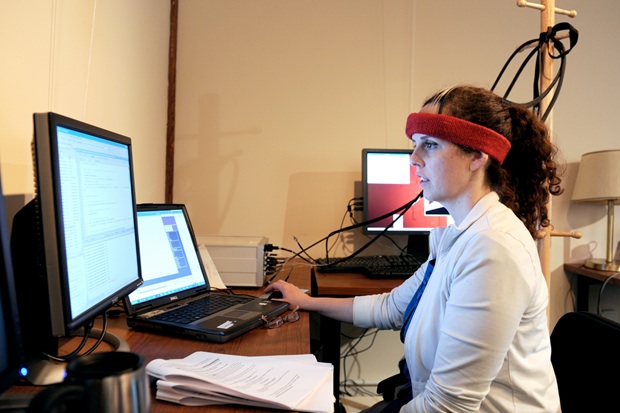Brainput
A research team from MIT & Tufts University have debuted a brain monitoring system called 'Brainput'


During the recent CHI conference in Texas, a research team from MIT & Tufts University debuted a brain monitoring system called Brainput which hopes to allow computers the ability to gain a little insight into our inner thoughts.
Brainput is a computer interface which uses brain data to detect when users are multitasking, and if they're getting too stressed, can automatically turn on autonomous computer activities to help with some of the tasks... So how does it work? Users wear a headpiece over their forehead which detects brain signals using a combination of technology from fMRI and EEG scanners. The headset is hooked up to a computer which monitors these brain patterns and detects those associated with multitasking. When these patterns are detected (i.e. if the user is getting too stressed from doing too many things at once), the computer can automatically kick in and help to lessen the load for the user and reduce the pressure.
To test their equipment, the team devised a task which involved guiding two robots around a maze on a computer. The tricky part of the task was that two robots had to be guided at the same time and be stopped from crashing into walls. The task was made even more difficult by the fact that the robots continued to move in one direction unless directed otherwise, so had to be constantly monitored.
If the headset detected the participants were getting stressed by the task, it automatically sent signals to the computer, which in turn controlled the robots into performing some movements autonomously and navigating the maze alone. The research found that humans performed better at the maze game when the Brainput system actively responded to their multitasking mind.
For now, the team behind the Brainput system hope to trial it in extremely information intense situations, like fighter pilot cockpits. Even if we'll never get to try it for ourselves, future computers that help out when users attention is divided seem like a good idea to us!


